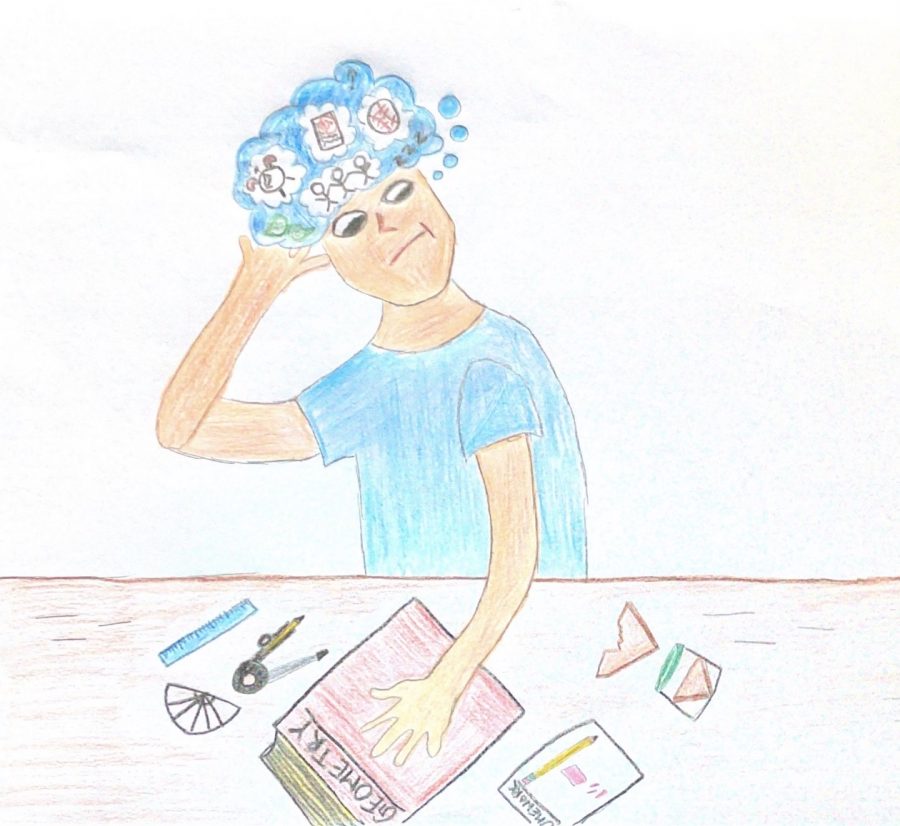Students should be encouraged to take mental health breaks in school
Assistant A&E Editor Katherine Wu believes students need time during school to focus on their mental well-being.
December 7, 2021
If I had a dollar for every time someone complained to me about school-related stress, I’d probably be rich enough to drop out and live stress-free for the rest of my life.
With the start of normal school after a year of online learning, students are feeling academic pressure more than ever. I can’t speak for everyone, but as an ambitious student and athlete myself, I have too often caught myself on the verge of mental breakdowns, having to balance sports games, homework, chores, and sleep.
Oftentimes it feels like the only way to escape all the stress is to miss school, but a day at home can lead to even more stress upon returning. Work piles up and, for many of us students, it feels like administrators only care about us getting our work done. But it doesn’t have to be that way.
Rather than being reactive, our school should be proactive in preventing stress and anxiety-related breakdowns. We students should be encouraged to speak out about our mental state and take breaks when we need to. Whether this means stepping outside to take a few breaths during a Chemistry lab or spending an extra day on homework, students should not be punished for prioritizing their mental health. Microbreaks, brief activities as short as a few seconds, have even been shown to increase productivity and make work more enjoyable.
Earlier this year, during the summer Olympics, USA star gymnast Simone Biles decided to withdraw from the team and individual all-around final competitions because she needed to focus on her mental health. Biles, commonly regarded as the “greatest of all time,” received both support and backlash for her decision, with some social media users calling her a “quitter.”
Taking breaks can feel uncomfortable. They may even feel wrong. However, there is a difference between a “quitter” and someone prioritizing their own well-being. A “quitter” pulls out just because they don’t want to do something, while someone putting themselves first understands they may not be able to do their best in the moment. They may need to step back so they can return with better performance. This is the case for both academics and athletics.
Like Biles, we should recognize our limits and be able to step back when we need to. The courage it takes to speak out will be beneficial long-term. If an extracurricular or class becomes too overwhelming or starts to cause more stress than enjoyment, it’s okay to stop. It’s not selfish; breaks are necessary and our stress can negatively affect those around us.
According to a Google Form survey of 105 students from Nov. 15 to Nov. 19, 82% of students have experienced an increase in stress since the start of the school year, with over half rating their stress levels an eight or above on a 10-point scale (10 being “Very High” stress).
Additionally, 44% of respondents don’t know how to access professional mental health support at Algonquin. Some students report they would like to, but think that no one knows how to help them or that taking the time to talk to someone isn’t worth it because it would take away from time for schoolwork and ultimately lead to even more stress.
By allowing students to speak out about their issues and prioritize their own mental stability, we can prevent anxiety and depression among our student body. As students, we should recognize our limits and take breaks when needed, even from activities we may have once loved or felt defined by. Only by being open about mental health can we begin to prioritize and better ourselves.










